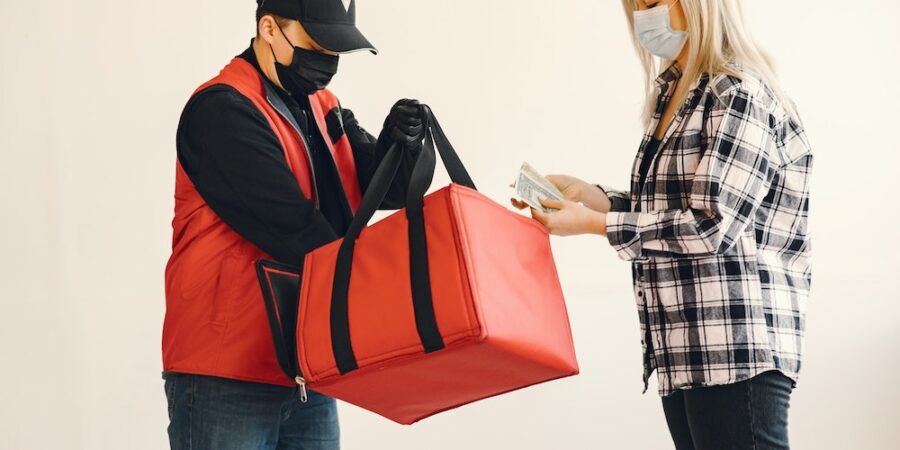In this blog post, you’ll discover essential tips and strategies on how to stay safe while buying and selling online.
Introduction
In the digital age, buying and selling online has become an integral part of our lives. The convenience of shopping from the comfort of our homes and the ability to reach a global market when selling products has revolutionized the way we conduct business.
However, this convenience also comes with certain risks. Online scams, fraudulent sellers, and data breaches are some of the threats that can compromise your safety and security.
In this comprehensive guide, we will explore effective strategies and tips to help you stay safe while engaging in online transactions.
So, let’s dive in and learn how to navigate the virtual marketplace securely.
Table of Contents
How to Stay Safe: Buying Online
1. Research the Seller Before Making a Purchase
One of the essential steps in staying safe while buying online is to thoroughly research the seller. Check for customer reviews and ratings on the platform where the product is listed.
Additionally, conduct a quick internet search to see if the seller has been involved in any scams or fraudulent activities.
Stick to reputable websites and avoid deals that seem too good to be true, as they often lead to counterfeit products or non-delivery of items.
2. Use Secure Payment Methods
When making an online purchase, always opt for secure payment methods such as credit cards or digital wallets.
These methods offer buyer protection and allow you to dispute charges if something goes wrong with the transaction.
Avoid using direct bank transfers or wiring money to sellers, as these methods offer little recourse if you encounter a problem.
3. Look for the Padlock Symbol and “HTTPS” in the URL
Before entering any sensitive information on a website, ensure that the webpage is secure. Look for the padlock symbol and “HTTPS” in the URL, indicating that the connection is encrypted.
Secure websites protect your data from potential hackers, reducing the risk of identity theft or financial fraud.
4. Be Cautious with Personal Information
Exercise caution when providing personal information during online transactions. Legitimate sellers do not require your social security number or excessive personal details.
Be especially wary of unsolicited emails or messages requesting sensitive information, as they may be phishing attempts.
5. Use Virtual Private Networks (VPNs) for Added Security
Consider using a Virtual Private Network (VPN) when making online purchases, especially when using public Wi-Fi.
A VPN encrypts your internet connection, making it more challenging for cybercriminals to intercept your data.
How to Stay Safe: Selling Online
6. Use Reputable E-commerce Platforms
When selling products online, choose well-established and reputable e-commerce platforms. These platforms often have built-in security measures and fraud detection systems to protect both buyers and sellers.
Furthermore, they provide a secure payment gateway, reducing the risk of financial loss due to fraudulent transactions.
7. Be Transparent and Accurate in Product Descriptions
Honesty is the best policy when selling online. Provide accurate and detailed product descriptions to manage customer expectations properly.
Disclose any defects or issues with the product and include high-quality images to give potential buyers a clear idea of what they will receive.
8. Monitor and Respond to Customer Feedback
Customer feedback is crucial for building trust and credibility as an online seller. Regularly monitor customer reviews and address any concerns or complaints promptly and professionally.
Showing that you value customer satisfaction can lead to positive reviews and repeat business.
9. Protect Customer Data
As an online seller, you must prioritize the security of your customers’ data. Implement robust data protection measures and comply with privacy regulations.
Securely store customer information and only use it for transaction-related purposes.
10. Offer Secure Payment Options
Provide your customers with secure payment options to instill confidence in your online store. Partner with reliable payment gateways that offer encryption and fraud protection.
Offering a variety of payment methods can also attract more customers and increase sales.
Conclusion
Buying and selling online offers incredible convenience and opportunities, but it also comes with inherent risks. By following the strategies outlined in this guide, you can navigate the virtual marketplace with confidence and minimize the chances of falling victim to online scams or security breaches. Remember to research sellers, use secure payment methods, protect personal information, and prioritize customer trust when selling online. Safeguarding your online transactions will ensure a safer and more enjoyable experience in the digital realm.
Frequently Asked Questions
1. How can I identify a secure online marketplace?
A secure online marketplace will have several indicators of trustworthiness. Look for a padlock symbol and “HTTPS” in the URL, ensuring that the website encrypts data. Additionally, reputable marketplaces often have verified seller badges and a robust customer review system.
2. Is it safe to use public Wi-Fi for online transactions?
Using public Wi-Fi can be risky, as it makes your data vulnerable to interception. If you must use public Wi-Fi, always connect through a VPN to encrypt your connection and protect your sensitive information.
3. What should I do if I encounter a fraudulent seller?
If you suspect a seller is fraudulent, cease all transactions immediately. Report the seller to the platform where the transaction took place, providing any evidence of wrongdoing. You should also contact your bank or credit card company to dispute any charges related to the transaction.
4. How do I know if an online deal is too good to be true?
Be cautious of deals that seem too good to be true, as they are often red flags for scams. Research the seller, read customer reviews, and avoid deals that promise unrealistic discounts or prices significantly lower than the market average.
5. What measures can I take to protect my customers’ data as an online seller?
To protect your customers’ data, invest in secure payment gateways, implement data encryption, and comply with relevant privacy regulations. Regularly update your website’s security software and educate your team about data protection best practices.
6. Should I share my social security number with an online seller?
No, you should never share your social security number or other sensitive information with an online seller. Legitimate sellers do not require such information for standard transactions, and sharing it could lead to identity theft or fraud.


Leave a Reply